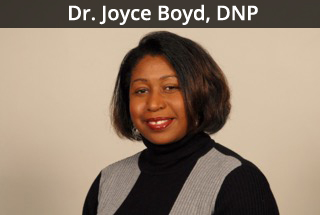The Health Resources and Services Administration (HRSA) is taking major steps to help Community Health Centers across the US tackle the devastating opioid epidemic by providing funding for substance abuse services and modern EHRs. OpenEMR, a modern, customizable, open-source and ONC Certified EHR is the best solution for high impact and cost-effective information technology solutions for Community Health Centers.
RUTLAND, Vt. - July 25, 2017 - PRLog -- The Health Resources and Services Administration (HRSA) announced on June 26 the availability of $195 million to assist community health centers to expand access to mental health and substance abuse services focusing on the treatment, prevention and awareness of opioid abuse as well as to help the implementation of modern health IT technology to assist the centers. Following the announcement, the OpenEMR community worked very hard to help the community health centers apply for the funding by setting up a central document repository and guidelines, and the lay out for how OpenEMR, a comprehensive open source EHR and practice management solution meets the HRSA's health IT requirements for funding.
The window of time to apply for this funding opportunity is narrow. The applications are due by July 26, 2017. There are approximately 1,400 health centers in U.S. states and territories that are eligible for this funding spanning more than 10,400 clinic sites that provide care to over 24 million people. Each health center can be awarded up to $150,000 in funding. Applications are available online and can be filled in and submitted at HRSA's website. Every health center that is eligible should take this opportunity to install an EHR, or improve their current EHR implementation.
Funding can be used for telehealth, prescription drug monitoring programs, clinical decision support, new or improved EHR implementation, quality improvement, cybersecurity, other training, and/or other health information technology.
The open-source nature of OpenEMR provides an ideal solution for these clinics by providing a customizable and cost-effective EHR that can successfully endure and grow over the long term for clinics with minimal resources. This opportunity is especially vital for those clinics that were left behind by meaningful use, such as low resource clinics, mental health clinics, and Doctor of Nursing Practice managed clinics.
As an open source EHR, OpenEMR provides an entire range of benefits to community health centers. These benefits include:
* As an open source platform, all the source code for OpenEMR is available and can be modified by the users. That means that the Community Health Centers have control of their own systems and can modify and improve the systems as needed.
* Community Health Centers can share modifications and enhancements to OpenEMR with the community as well as other Community Health Centers. This is a very cost effective way for community health centers to enhance, modify and improve the code base for to fit their own needs.
* OpenEMR has open Application Programming Interfaces (APIs) and an Open Data architecture. That leads to full interoperability with other systems rapid innovation. The centers own and have full control of their patient records. OpenEMR is the best solution to the data blocking problem.
* OpenEMR can be deployed multiple ways, from a local server to the cloud. The cloud option can potentially be of great benefit to community health centers as networks can can operate out of a single cloud-service. This is both cost efficient and can be leveraged to track substance abusers who go shopping from one community health center to another.
* There are no recurring licensing fees to the core OpenEMR package. There are over 40 certified vendors and professional services that implement OpenEMR and can provide customization, support and maintenance. Some of the vendors have also developed add ons and modules to OpenEMR that extend the capabilities of the platform.
OpenEMR is already geared towards fulfilling EHR capabilities for Community Health Centers and accomplishing HRSA's goals in a cost effective fashion. OpenEMR and the OpenEMR community provide tools specific to Behavioral Health and Substance Abuse Services and more importantly provide tools to expedite creation of customized tools specific to each Community Health Center. Notable features include:
* A random drug screening module.
* Opiate calculator.
* Opiate prescription tracking.
* Screening tools for depression, anxiety, and substance abuse.
The random drug screening module selects and tracks patients for random drug screenings, which usually include testing of urine for opiates and other drugs. The frequency of the random drug testing and the maximum number of drug screens of a patient per year is configurable.
The opiate calculator converts drug doses between different opiates, for example when converting a morphine dose to a equivalent dilaudid dose. "The opiate tracking system is to help the care takers see at a glance if a patient is increasing the dosing of opiates over time. The graph is displayed prominently on the face page for the patient. The crown jewel is that each practice can set their own list of opiates and dosage multipliers as needed" said Open Med Practice Owner, Sherwin Gaddis.

Several available screening tools in the OpenEMR community include general depression and anxiety screens (Patient Health Questionnaires - PHQ9 and PHQ4) and SAMHSA's universal substance abuse screen, also known as the Screen Brief Intervention Referral to Treatment (SBIRT) screen. The screening tools were created using the Layout Based Forms feature within OpenEMR for a safety net clinic. Dr. Joyce Boyd, DNP, whom developed these screening tools in OpenEMR, said, "A novice programmer will be able to customize forms through the Layout Based Forms user interface and also apply functionality, screen formatting, etc. using PHP, Java, CSS, and/or jQuery coding. Whenever I needed assistance from the OpenEMR community, they were very helpful and responsive."
The OEMR nonprofit organization is the legal entity that maintains the ONC certification for OpenEMR. It actively encourages and assists OpenEMR vendors to partner with health centers applying for this opportunity. The OEMR organization has an informative web page for eligible health centers.
Source - open-emr.org

